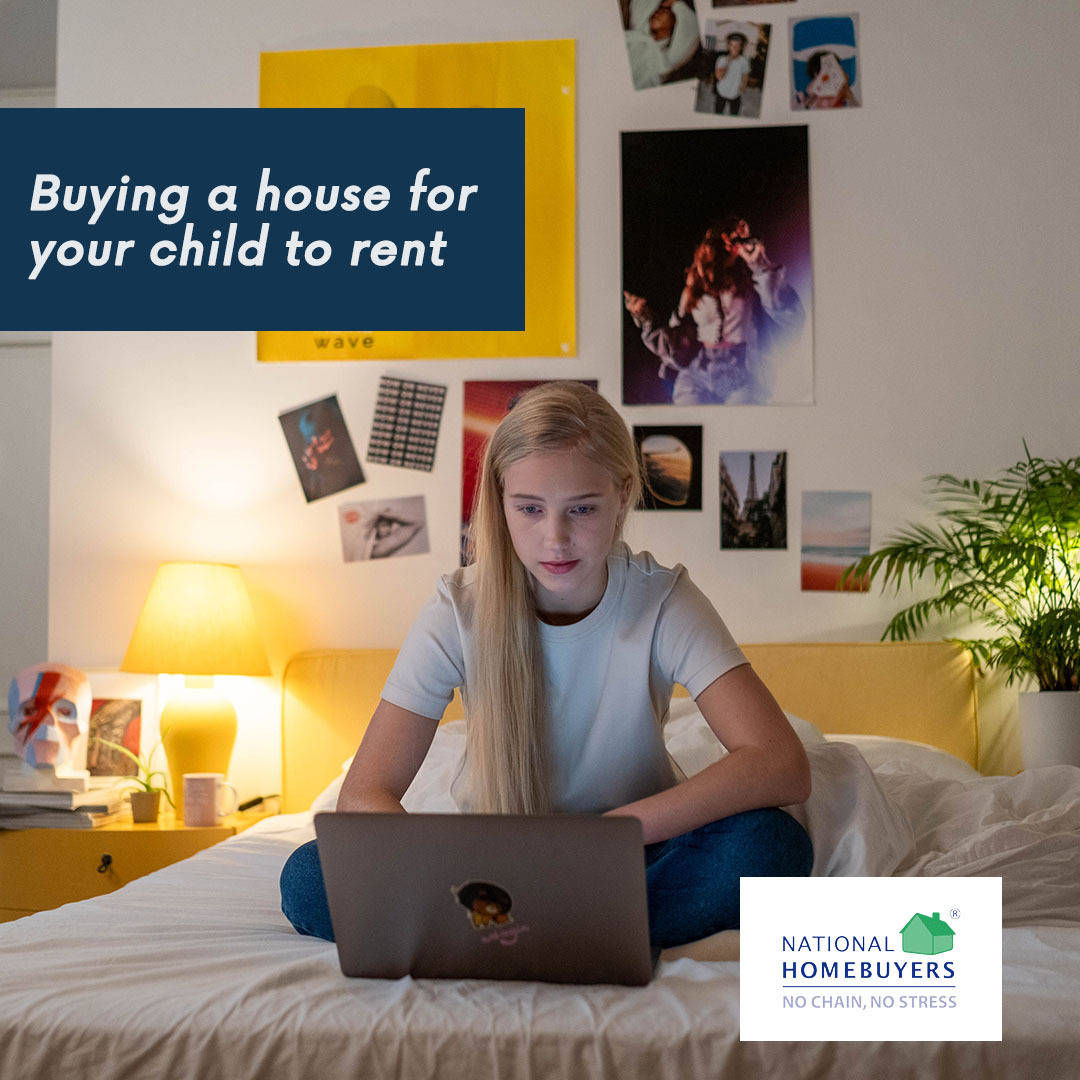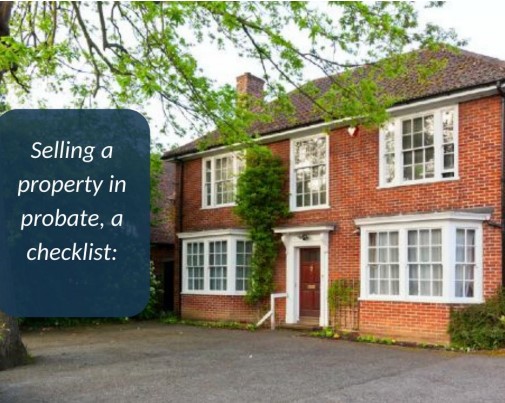Buying a house for your child to rent
It’s never been trickier for young people to invest in their first home. Recent growth in first-time buyers has come with an average £53,935 deposit and an age of 32, according to recent figures from Halifax. So, if you’re a parent, have you considered buying a house for your child to rent?
Around one third of 25-34-year-olds rely on a gift or loan from the Bank of Mum and Dad or other family members to get onto the property ladder. But you may not want to simply donate to your children, or you might want to ensure that any money lent to them is formally repaid. And by owning a property you rent to your children, you’re investing in an asset which could be rented to other tenants, or sold when the time is right.
You might also be considering it when your children are heading to university, to ensure they can have access to quality, affordable accommodation.
If you already own a second property, then the option of renting to a family member is a little easier. But whatever situation you’re in, it’s always important to consider the benefits, drawbacks, and legal obligations, before you make a commitment.
The benefits of buying a house for your child to rent
Even the closest family relationships can become strained when children get older and continue to live at home. It’s only natural that they might want their own space and privacy, and as a parent, you might be looking forward to that day as well.
From your child’s perspective, it will typically mean they’ll get more stability and a higher standard of care and attention than from a private landlord or letting agency. And it also avoids the need for hefty deposits and guarantees. Finally, you’re less likely to inflate the monthly rental price, although many mortgages will require you to charge a minimum amount as part of the conditions.
And as a parent, you’re able to help your child without simply handing over money, or risking your home or savings as security for them to take out their own mortgage. Instead, you’ve got a formal way of being repaid over time for assisting them into their own home, and the fallback of selling or renting to other tenants if the property is no longer needed by them.
It sounds like an ideal situation for everyone, but there are some important legal and financial obligations to consider, along with other potential pitfalls, before you jump into buying a property for your children to rent.
The disadvantages of buying a house for your child to rent
If you’re taking out a mortgage for your second property, it will generally require a larger deposit. Often this will be around 25%, which can be a significant amount, especially when you’ll also be paying a 3% higher stamp duty surcharge on an additional home.
You’ll also be liable for income tax on any rental income you make, and most buy-to-let mortgages will require an interest cover ratio (ICR) or between 125-145%, which means the rent will need to be 25-45% higher than the monthly mortgage payments, although there are one of two exceptions.
If you are financially able to let a property to your children for below the market rate, there are some other tax implications to consider. For example, you might not be able to claim all the associated expenses if you can’t justify your ownership as ‘wholly for business purposes’, and there can also be complications regarding inheritance tax.
You’ll also have the same legal obligations as any other landlord, which means safety checks including gas, fire and electrics, energy efficiency requirements, and insurance. If you’re planning on letting your house to anyone alongside your children, then you’ll also need to obtain House in Multiple Occupation (HMO) licensing.
And potentially the biggest risk is mixing your relationship as a parent and child with that of landlord and tenant. While a formal tenancy agreement can help establish the ground rules, it’s important to consider what might go wrong before it happens. This includes what happens if a rental payment is missed, whether you can afford for your children to move out suddenly, or who is responsible for fixtures and fittings, maintenance and other potential costs and issues.
If your child is moving into the property with a partner or spouse, you also need to think about what might happen if they separate after starting their own family. In that situation, the ex-partner or spouse could be given the right to remain in the house. And there are restrictions around the benefits payable to anyone living in a property owned by a relative.
Alternatives to buying a house for your child to rent
There are other options worth considering before investing in a property to rent to your children, ranging from simply gifting an amount to taking on a joint mortgage.
The most obvious route will typically be offering a gifted deposit to enable children to borrow more, and this will be accepted by most banks. But you may need to provide written confirmation, and it can be subject to inheritance tax if you go beyond the annual allowance. So, it’s important to check with a financial advisor to make sure you avoid an unexpected bill.
Alternatively, you could loan the money. But while it’s relatively straightforward to set up a simple loan agreement to avoid disputes in the future, this will also need to be declared to any mortgage lender. Some banks won’t accept a borrowed deposit, and any approvals will include the loan repayments as part of the calculations for the mortgage amount.
Financial help can provide a big assistance for young first-time buyers. But it isn’t always the right choice, with a Legal & General study revealing almost one in five parents or grandparents have to accept a lower standard of living to help their families onto the housing ladder.
It’s possible to help your children without any financial cost. One option is to offer a portion of the equity in your home as security, which shouldn’t cost anything unless mortgage payments are missed, at which point you would become liable and your property may be at risk.
Another alternative is an offset mortgage, which reduces the interest amount by offsetting the loan amount against your parental savings. The downside is that you won’t be able to access that money until the mortgage term is completed.
Guarantor mortgages aren’t common, but they allow you to agree to cover the mortgage payments if your child fails to do so, and it’s possible to have yourself removed at a later date if your child can prove they’re able to take on the whole debt by themselves.
The final option is to take out a joint mortgage, which means you’re equally liable. And this also comes with the potential of additional stamp duty and capital gains tax liabilities.
Should you buy a house for your child to rent?
Every situation will be different, and it’s very important to get independent financial advice before entering into any property agreement with your children or other family members. Money matters can be a huge issue even in otherwise loving families, and you need to ensure you’re not hit by unexpected taxes or costs.
It’s important to understand all of the financial implications, and the legal obligations you’ll incur by becoming a landlord to your children. It might not seem necessary to draw up a formal rental agreement or to request a deposit, but these steps will often prevent arguments and disputes in the future. And you’ll also need to consider how to safeguard your child if you die or are declared bankrupt.
But most importantly, you need to consider your relationship with your children at every stage. While it might be financially beneficial to rent a property to them, or to assist them with home buying in other ways, you don’t want to fall out with your family in the process.
And if things do go wrong, make sure you’re aware of your options. Whether you’re in a rental agreement or joint mortgage with your children, if you need to end the arrangement quickly for any reason, then you can get a quick cash offer today. And along with a prompt completion, you can also potentially have up to £1,000 of your legal costs covered as well.






